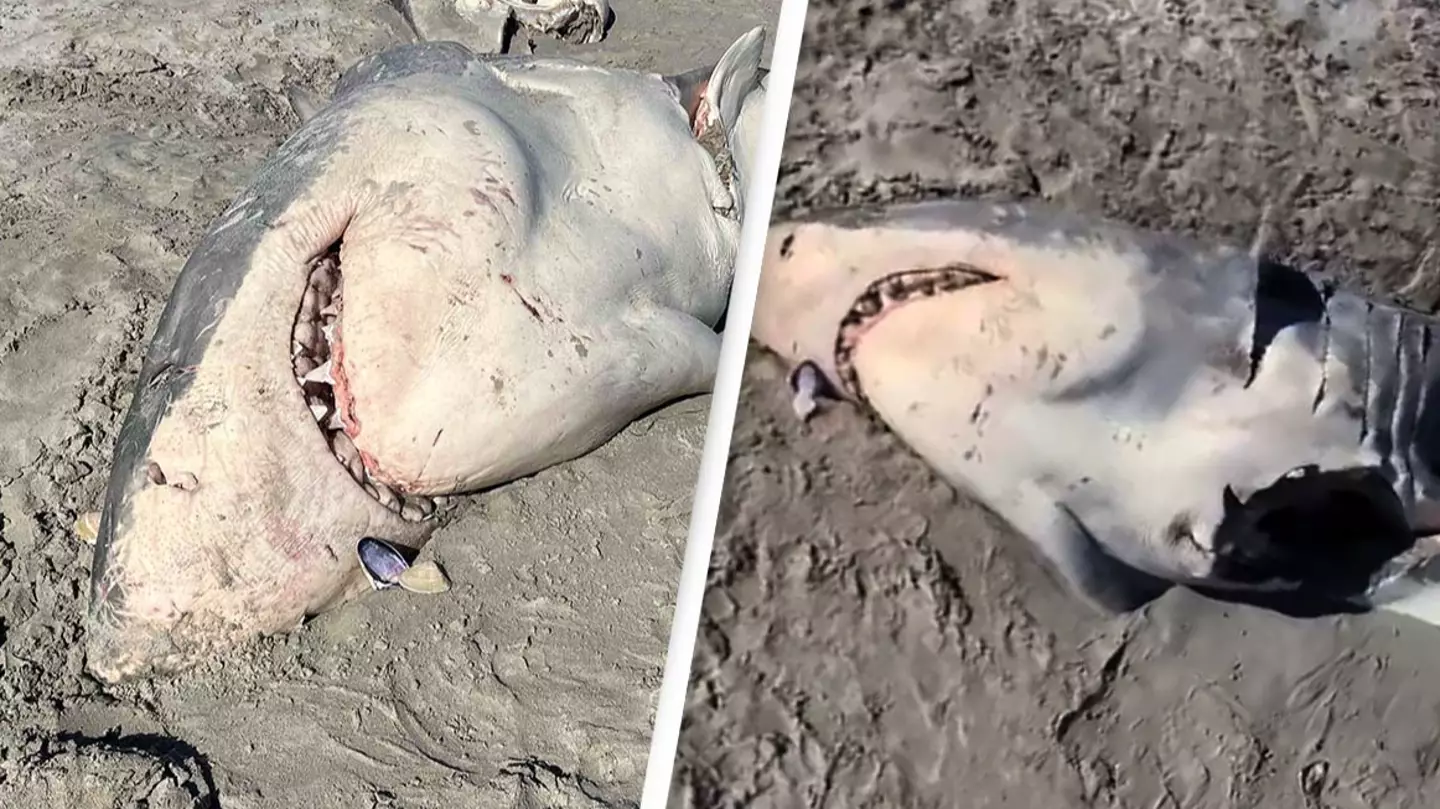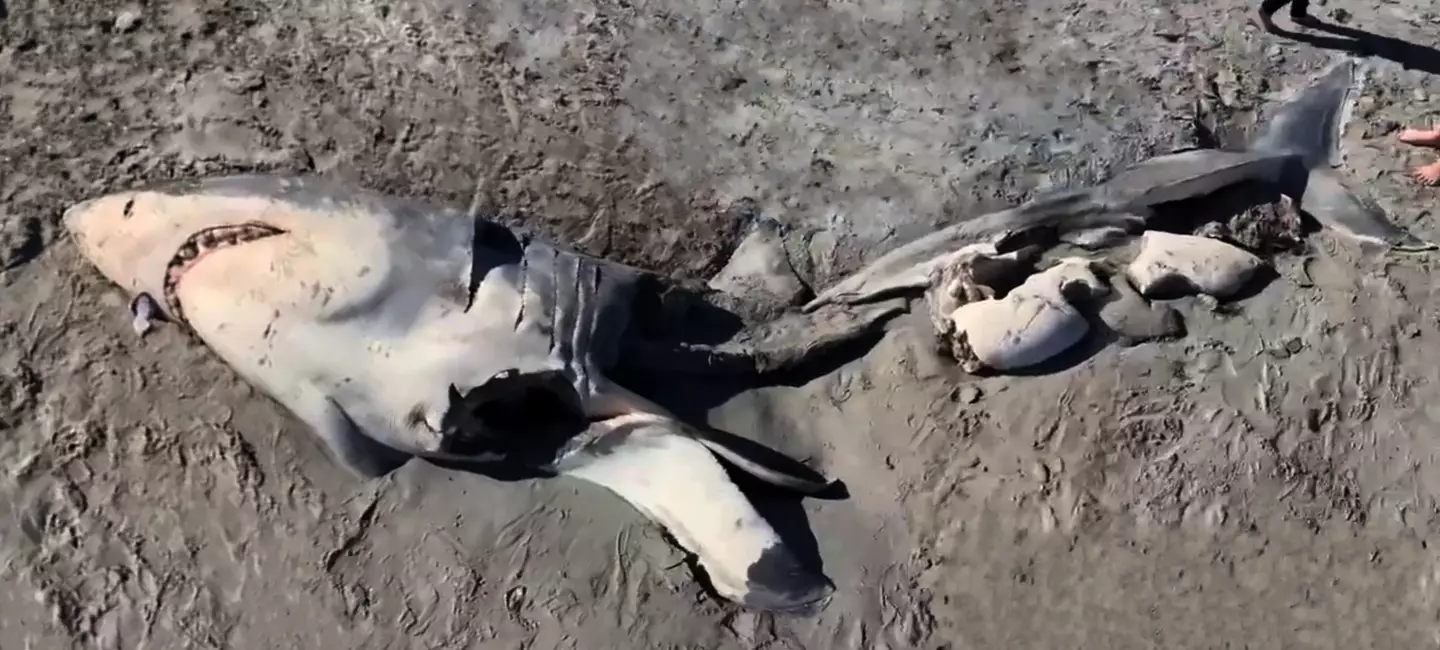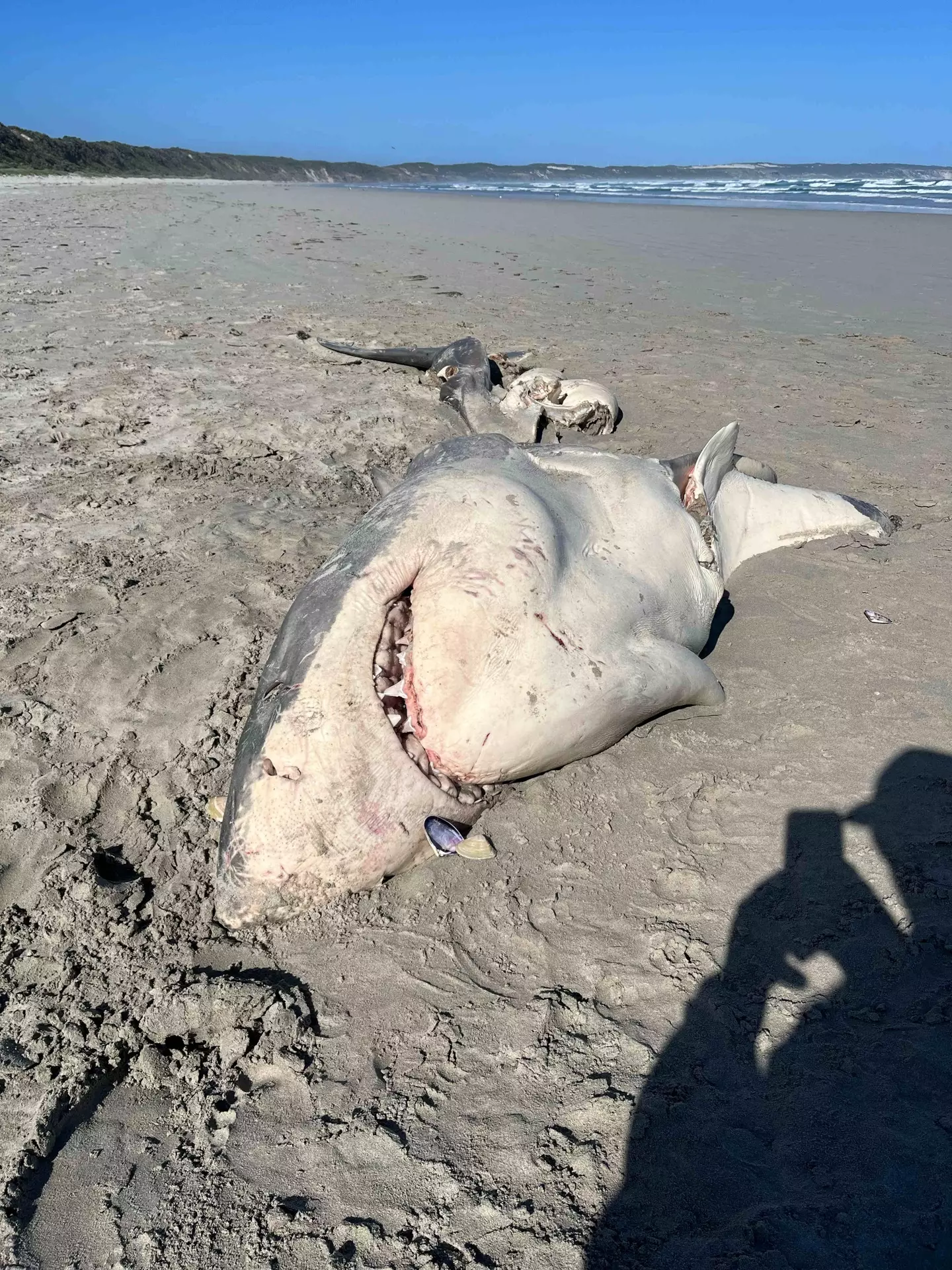
They might be portrayed as the most fearsome predators in the ocean, but even great white sharks sometimes have cause to be afraid.
It's something which is so fearsome it can cause the terrifying sharks to flee their hunting grounds.
And with good reason.
Advert
One great white was not lucky enough to escape, and ended up washed up on a beach in Victoria, Australia, with half of its body missing.
Warning: Graphic content
Images from the beach show there really wasn't much left of the unfortunate shark, which would have been about four metres long when fully intact.
But what on earth would be ferocious enough to do this to something as deadly as a great white?
Advert
A likely culprit is the only animal in the ocean which has no natural predators, and from which nothing from the smallest herring to the mighty Blue Whale is safe.
That's right, it's those monochrome menaces, the orcas.

Great whites might be ferocious, but orcas are both larger and more intelligent, and have a taste for shark liver.
Advert
It was the aftermath of such an attack which led fisherman Ben Johnstone to discover the mauled body of the shark on Bridgewater Beach near Cape Bridgewater on 17 October.
Johnstone, 28, said: “I’m pretty certain it was killer whales – they kill sharks just for the livers, it’s the only part of them that they eat.
“As for what happened to the rest of the body, once the orcas are done, the rest of the intestines, stomach etcetera would’ve fallen out, as there’s nothing there to hold them in.”
A pod of orcas, which are not true whales but actually the largest species of dolphin, had been spotted in the area a couple of days earlier according to local media reports.
Advert

Tropical ecologist Lauren Meyer described how orcas are notoriously picky eaters, saying: “We see this with things like humpback whales, where killer whales come in and actually eat the tongue and leave the rest of the whale.
"We certainly see that they prefer the liver of white sharks, mako sharks, bronze whalers and sevengills, and even tiger sharks.”
Johnstone added: “I was intrigued more then anything.
Advert
“I found it pretty cool that something like that happened in our local waters.”
One theory is that orcas hunt sharks by flipping them onto their back. This sends sharks into a catatonic state where they become completely still, leaving them helpless to the orca's teeth.
An attack saw great whites fleeing an area in droves, with one tagged shark diving to 500 metres down to avoid the orcas.
Topics: News, Australia, World News
